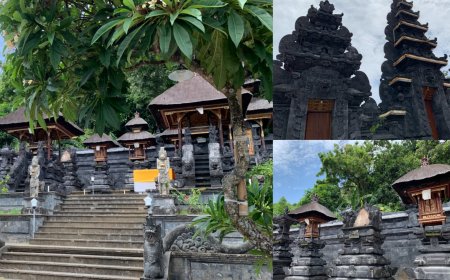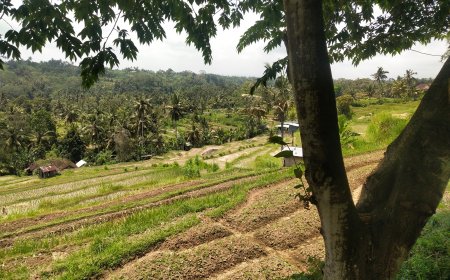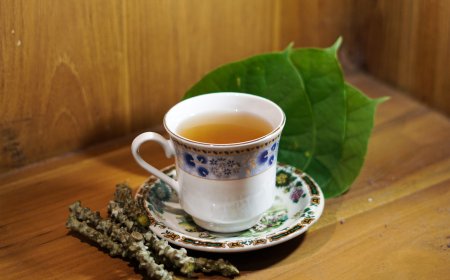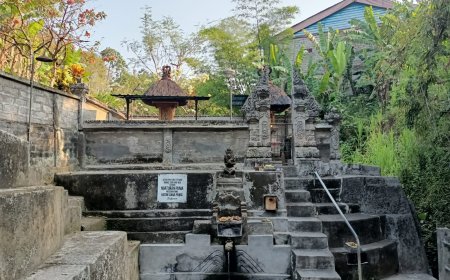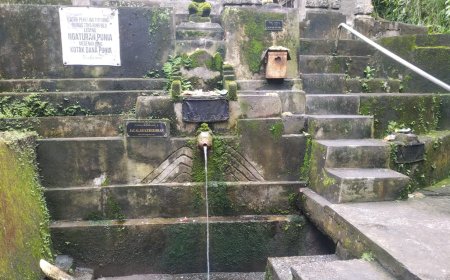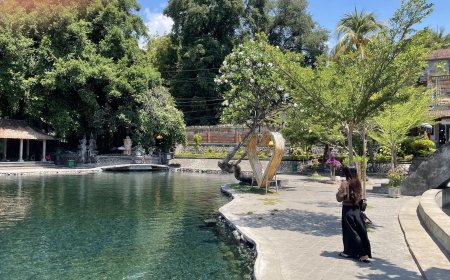Beji Golok as a Sacred Patirtan and Melukat Site in Kediri
Pura Beji Golok in Desa Buwit, Kediri, Tabanan is more than a place of worship, it is a symbol of harmony between humans, nature, and spirituality. Its sacred water, flowing eternally from a mystical cave, serves as both a medium for the melukat purification ritual and the main drinking source for local residents. The community’s belief in its power—ranging from health benefits to blessings for infants, reflects that Beji Golok is not merely a patirtan, but also a cultural and spiritual heritage preserved with reverence by future generations.
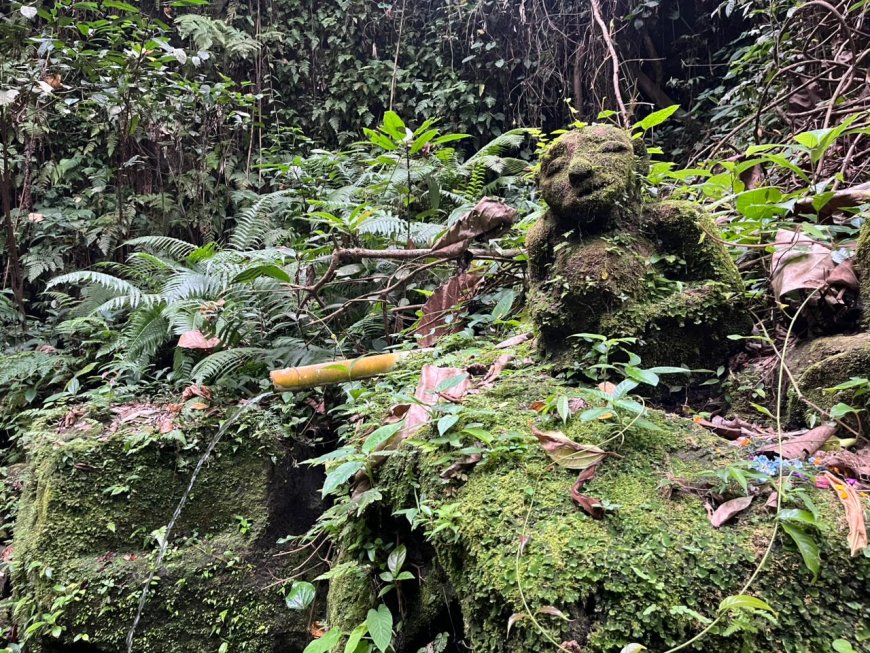
In Banjar Kelakahan, Desa Buwit, Kediri District, Tabanan Regency, lies Pura Beji Golok, a temple renowned for its spiritual aura and sacred spring. Hidden away from the main road, visitors must descend dozens of steps to reach the temple’s main area. This journey is often seen as part of the ritual itself, teaching humility and inner readiness before entering the holy site.
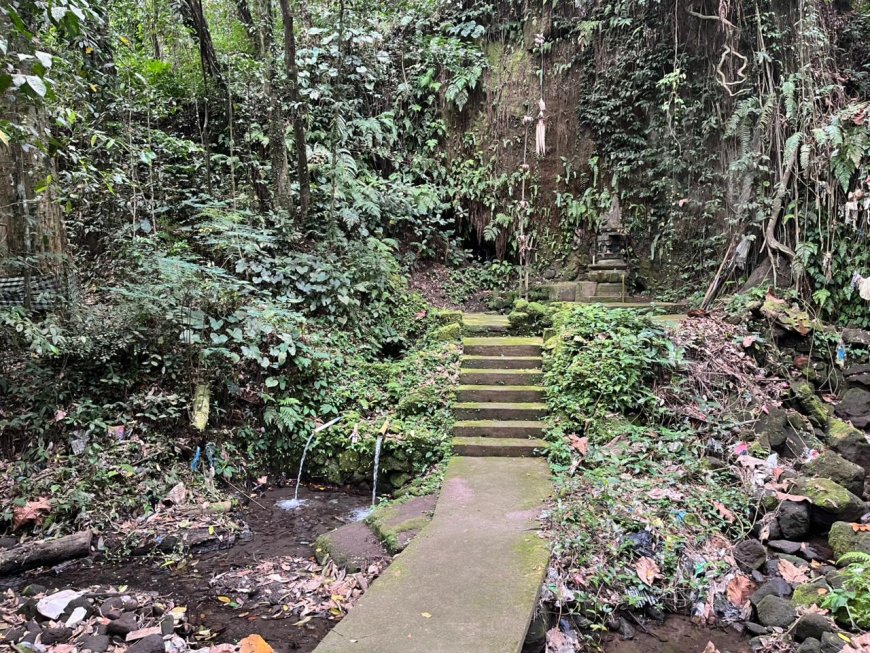
Main area of Pura Beji Golok in Desa Buwit, Kediri, Tabanan (Photo Source: Personal Collection)
For the local community, Beji Golok is not only a place of worship but also a sacred patirtan, a holy water site with an essential role in various Hindu rituals. Every piodalan on Soma Kliwon Krulut, the temple becomes crowded with Hindu devotees seeking blessings and performing the melukat purification ritual.
What makes Beji Golok unique is its spring water, flowing endlessly from a natural cave. According to local stories, the stream once emerged beneath a small waterfall but was later blocked by a landslide. Despite that, the water continues to flow strongly, believed to be a divine gift symbolizing eternal life. Many visitors testify that after melukat, they feel lighter, calmer, and spiritually cleansed.
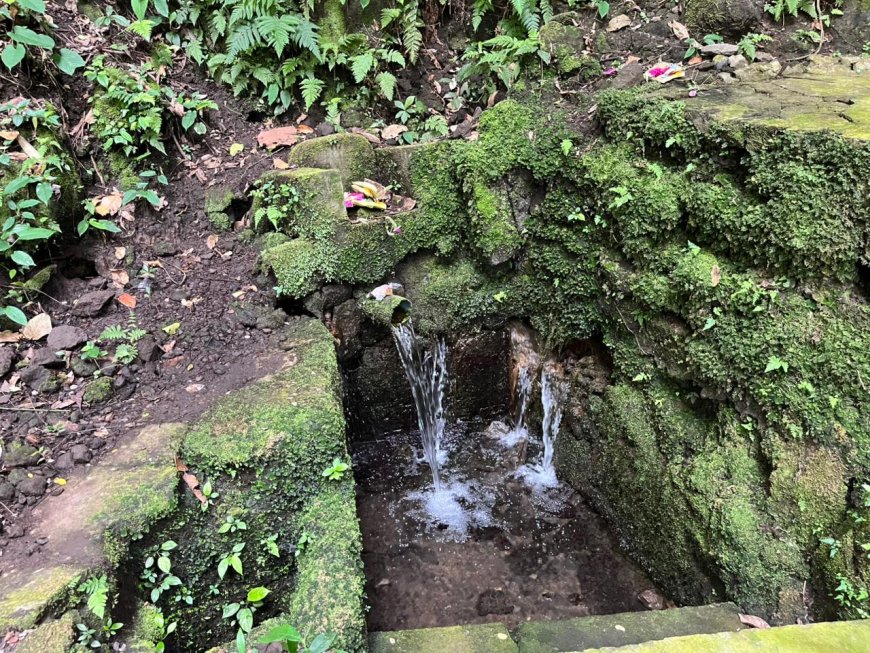
The sacred cave where Beji Golok’s spring water flows (Photo Source: Personal Collection)
The temple features six sacred spouts. Two spouts at the lower area serve as the initial purification point, where devotees cleanse themselves before continuing to the main temple. There, priests offer prayers and bathe the devotees with the holy water. This ritual is believed to bring healing, peace of mind, and relief from spiritual burdens.
Beyond rituals, Beji Golok is also known for its “magical water” used in daily life. A long-standing tradition involves bathing infants with its water, believed to ensure healthy growth and protection from illness. Moreover, many locals prefer Beji Golok water as their main drinking source. Unlike water from PAM (the local water supply), Beji Golok water is consumed directly without boiling, considered pure, fresh, and healthy.
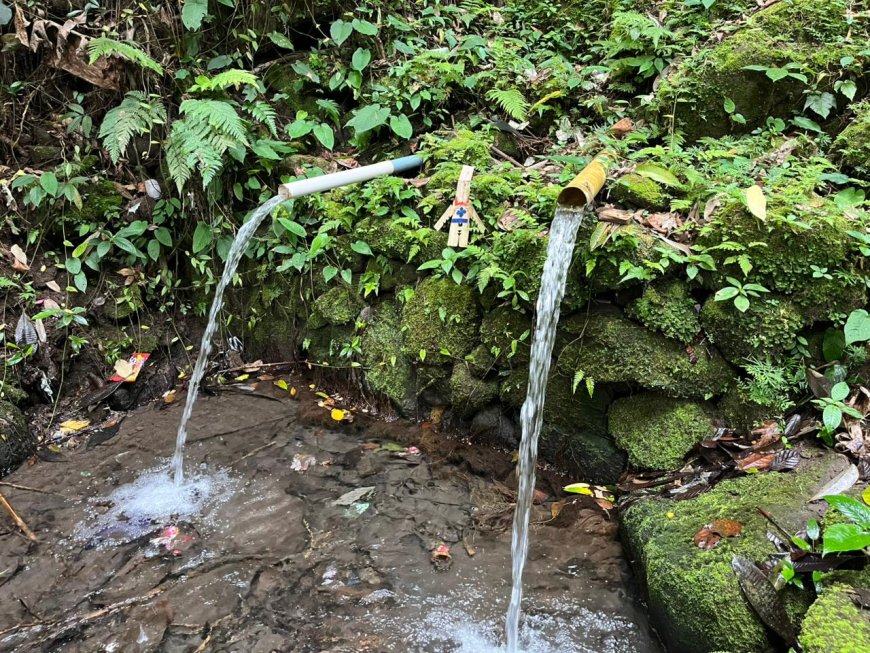
One of the sacred spouts at Pura Beji Golok (Photo Source: Personal Collection)
Beji Golok symbolizes the harmony between humans, nature, and the divine. Its ever-flowing water represents a lasting connection with the universe, while the melukat ritual reflects awareness of a sacred force beyond oneself. The lush greenery, peaceful cliffs, and the sound of flowing water enhance its sacred atmosphere, attracting not only worshippers but also those seeking inner peace.
As a cultural and spiritual heritage, Pura Beji Golok holds profound significance for the Balinese people. Its holy water sustains both religious tradition and community health, making it a timeless reminder of the balance between spirituality, culture, and nature.




